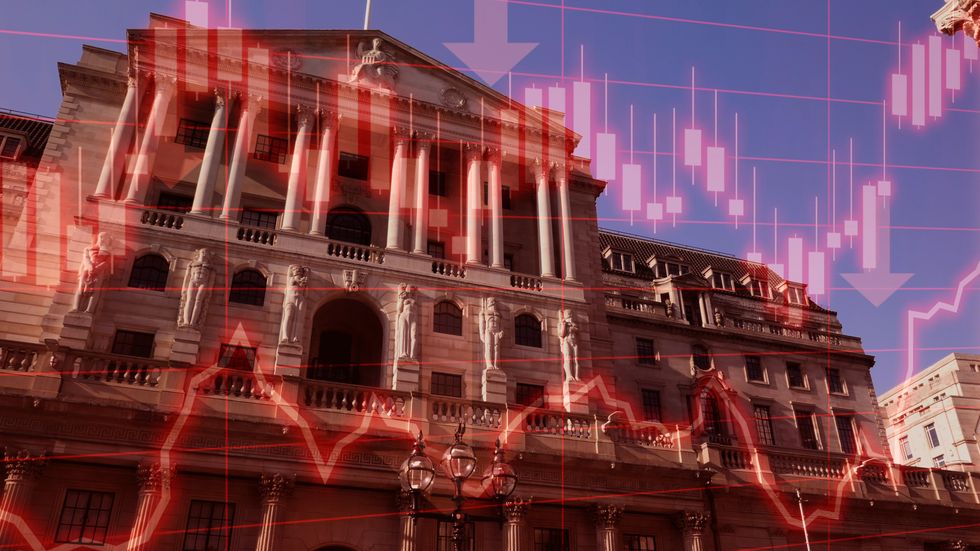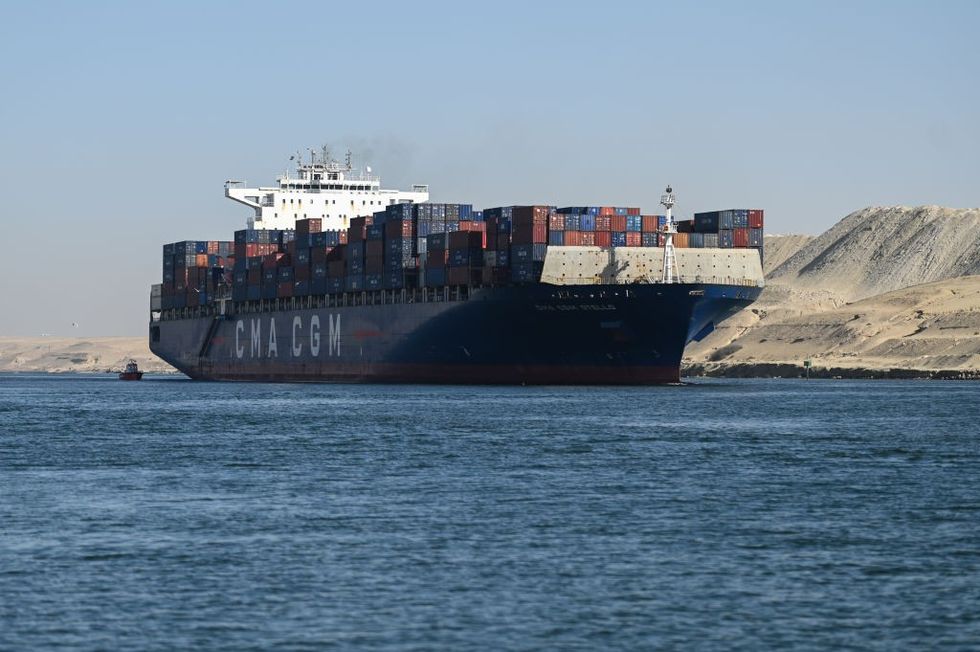Red Sea attacks could shrink UK economy and trigger energy crisis, Treasury fears
The Treasury is reportedly concerned Britain could face another energy bill crisis
Don't Miss
Most Read
Trending on GB News
The UK economy could shrink even further due to the ongoing attacks on shipping in the Red Sea and experience another energy bill crisis, the Treasury has feared.
The Government has modelled various scenarios which could play out as a result of the Houthi assaults on vessels, the BBC reports.
These include crude oil prices jumping by more than $10 a barrel and a 25 per cent rise in the cost of natural gas.
If the disruption to cargo traffic spreads to tanker traffic, the Treasury is concerned another energy crisis is possible.

The Treasury is reportedly concerned about the impact of the Red Sea conflict on the economy
GETTY
The price of Brent crude, which is the international benchmark for oil prices, jumped by two per cent to $78.94 per barrel today.
At the same time, the price of US West Texas crude jumped by 2.1 per cent to $73.55 which signals the conflict’s impact on the economy.
Vincent Clerc, the chief executive of shipping giant Maersk, called for “stronger mobilisation” against those perpetuating the attacks prior to the UK and US military retaliation this morning.
Global shipping has been in disarray following attacks by Houthi rebels from Yemen on vessels travelling the Red Sea, an important trading route between the Mediterranean and the Arabian Sea.
Ships have been forced to travel around the southern tip of Africa instead with the detour taking seven to 20 days longer to complete.
Around a quarter of the world’s shipping containers have been diverted from the Red Sea which has led to UK business leaders warning it could “drive inflation”.
Speaking to the BBC, Mr Clerc described the route as “one of the most important arteries of global trade”.
He noted that even if the Red Sea became safe for journeys again it would “probably take a few months more”.
LATEST DEVELOPMENTS:

Ships are being diverted from the vital trading route
GETTY
Shipping lines, including Maersk, MSC and Hapag-Lloyd, have pushed up their rates following the conflict. According to Mr Clerc, these costs will trickle down to consumers “which in these times of inflation is really something that we need to try to avoid”.
US Secretary of State Antony Blinken warned extra costs will get “translated into higher prices for people, for everything from fuel to medicine to food” while on his tour of the Middle East this week.
Secretary Blinken added: “And so it's having a real impact on people around the world in their daily lives.” Chancellor Jeremy Hunt told BBC’s Today programme last weekend: “It may have an impact and we'll watch it very, very carefully.
“What I would say is that we've been very, very clear to the Houthis who are responsible for the, the terrorism that's happening in the Red Sea, that there will be consequences and we will not just sit back and accept that because it's so vital for global trade.”









